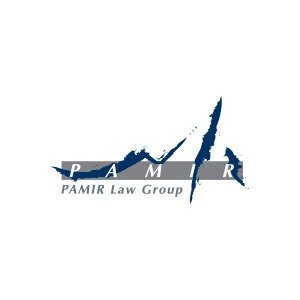Best Financial Services Regulation Lawyers in Taipei
Share your needs with us, get contacted by law firms.
Free. Takes 2 min.
List of the best lawyers in Taipei, Taiwan
About Financial Services Regulation Law in Taipei, Taiwan
Financial Services Regulation in Taipei, Taiwan, is primarily overseen by the Financial Supervisory Commission (FSC). Established in 2004, the FSC is responsible for the comprehensive supervision of all financial institutions, including banks, insurance companies, and securities firms. Taiwan aims to ensure the stability of its financial markets and protect consumers through stringent regulatory frameworks. These regulations address financial transparency, consumer protection, anti-money laundering, and fair capital market operations. Taiwan actively aligns its regulations with international standards to foster a robust financial environment.
Why You May Need a Lawyer
Navigating Financial Services Regulation in Taipei can be complex, especially for businesses or individuals unversed in local laws. Common situations where legal representation may be required include:
- Establishing a financial institution or service branch and seeking regulatory approval.
- Compliance issues with existing financial laws and regulations.
- Concerns regarding consumer protection and disputes with financial service providers.
- Facilitating mergers, acquisitions, or other financial transactions involving regulatory oversight.
- Defense against accusations or investigations related to financial regulations or market misconduct.
A specialized lawyer can offer invaluable assistance in ensuring regulatory compliance, mitigating legal risks, and representing clients in disputes or negotiation processes.
Local Laws Overview
The regulatory framework in Taiwan encompasses a variety of laws and guidelines that influence the operation and regulation of financial services:
- The Banking Act governs banking operations, promoting a stable and competitive banking system.
- The Securities and Exchange Act regulates securities markets to ensure fair trading and transparency.
- The Insurance Act oversees insurance entities and activities to protect policyholders and maintain market order.
- Anti-money laundering (AML) and counter-financing of terrorism (CFT) regulations are enforced rigorously to comply with international standards set by FATF.
- Consumer protection laws ensure fair treatment of financial service consumers and prevent unjust practices.
These regulations are designed to promote fairness, transparency, and consumer confidence in the financial services sector, as well as to harmonize Taiwan’s regulations with global practices.
Frequently Asked Questions
1. What is the role of the Financial Supervisory Commission (FSC) in Taiwan?
The FSC is the primary regulatory authority overseeing the financial services sector in Taiwan, responsible for ensuring financial stability, market integrity, and consumer protection.
2. What types of financial services are regulated in Taiwan?
Regulated services include banking, insurance, securities, futures trading, and asset management, among others.
3. How are foreign financial entities regulated in Taiwan?
Foreign entities must comply with local regulations, which often require establishing a branch or subsidiary in Taiwan and obtaining necessary licensure from the FSC.
4. What are the penalties for non-compliance with financial regulations?
Penalties may include fines, suspension of operations, license revocation, or legal action depending on the severity and nature of the infraction.
5. How can consumers file a complaint against financial institutions?
Consumers can file complaints through the FSC’s Consumer Service Center or directly with the financial institution’s designated dispute resolution unit.
6. Are there any specific regulations for fintech companies?
Yes, Taiwan has introduced several regulations and sandbox programs to support fintech innovation while ensuring regulatory compliance and risk management.
7. What are the requirements for compliance with AML/CFT regulations?
Financial institutions must implement robust AML/CFT systems, conduct due diligence, report suspicious activities, and maintain transaction records as per FSC guidelines.
8. What protections are in place for investors in Taiwan?
Investor protections include regulations ensuring transparency, fair trading practices, and mechanisms for dispute resolution and compensation.
9. Can legal advice be obtained from the FSC?
The FSC provides guidance on regulatory requirements but does not offer legal advice. It is advisable to seek legal consultation from a specialized attorney for personalized legal assistance.
10. Where can financial laws and regulations be accessed?
The FSC website provides access to laws, regulations, and guidelines relevant to financial services, available in multiple languages for stakeholder convenience.
Additional Resources
Individuals and businesses seeking further information and support in Financial Services Regulation in Taipei may consider the following resources:
- Financial Supervisory Commission (FSC): The official site provides comprehensive information on regulations, standards, and financial sector updates.
- Taiwan Depository & Clearing Corporation (TDCC): Offers services related to securities depository and settlement.
- Bankers Association of the Republic of China: A professional organization providing services and advocacy for the banking industry.
- Consumer Protection Committee: Offers guidance and support for consumer rights and dispute resolution.
Next Steps
If you require legal assistance in the field of Financial Services Regulation, consider the following steps:
- Identify Your Needs: Clearly define the legal assistance needed, whether it's for compliance, legal representation, or dispute resolution.
- Consult a Specialized Lawyer: Seek out a lawyer or law firm with expertise in financial services regulation in Taiwan. Consider scheduling initial consultations to assess their suitability for your case.
- Gather Documentation: Prepare all necessary documents and records related to your case, such as contracts, correspondence, and transaction records.
- Stay Informed: Keep updated with any changes in financial regulations through reliable sources to ensure ongoing compliance and awareness.
Legal challenges in financial services can be intricate, and professional assistance is crucial in navigating the regulatory landscape successfully.
Lawzana helps you find the best lawyers and law firms in Taipei through a curated and pre-screened list of qualified legal professionals. Our platform offers rankings and detailed profiles of attorneys and law firms, allowing you to compare based on practice areas, including Financial Services Regulation, experience, and client feedback.
Each profile includes a description of the firm's areas of practice, client reviews, team members and partners, year of establishment, spoken languages, office locations, contact information, social media presence, and any published articles or resources. Most firms on our platform speak English and are experienced in both local and international legal matters.
Get a quote from top-rated law firms in Taipei, Taiwan — quickly, securely, and without unnecessary hassle.
Disclaimer:
The information provided on this page is for general informational purposes only and does not constitute legal advice. While we strive to ensure the accuracy and relevance of the content, legal information may change over time, and interpretations of the law can vary. You should always consult with a qualified legal professional for advice specific to your situation.
We disclaim all liability for actions taken or not taken based on the content of this page. If you believe any information is incorrect or outdated, please contact us, and we will review and update it where appropriate.
















